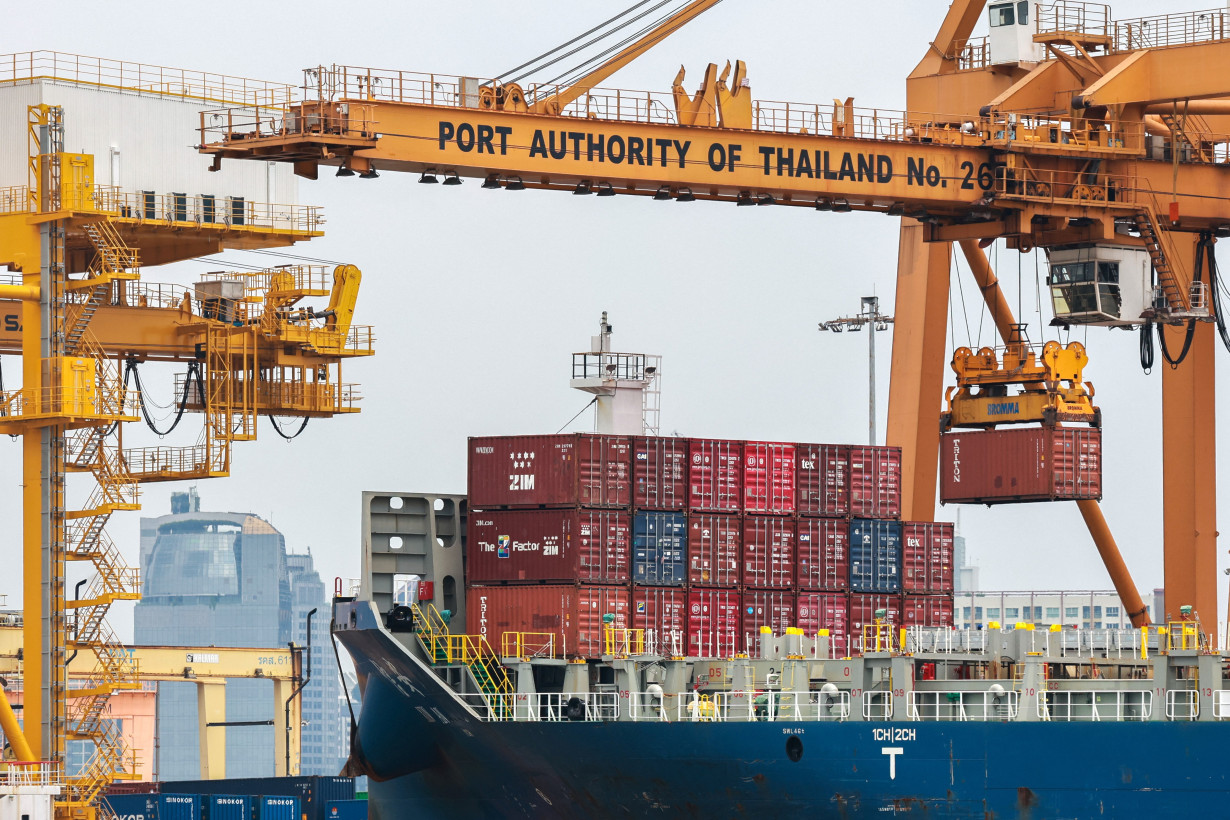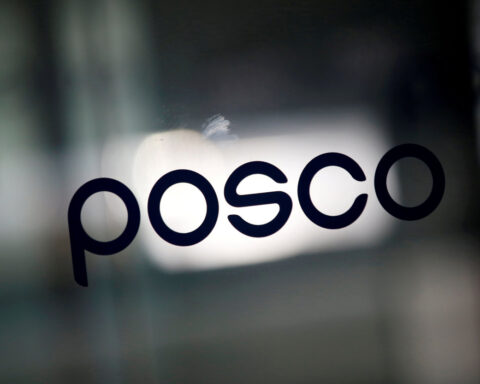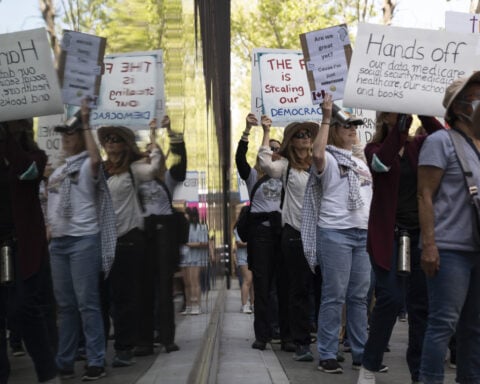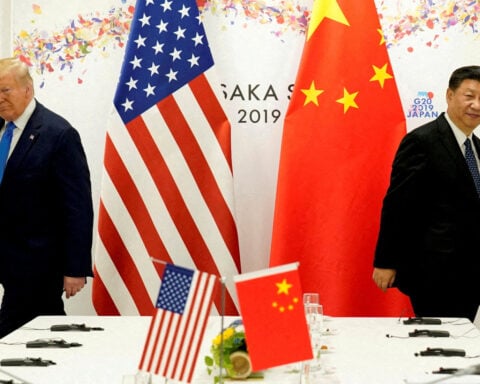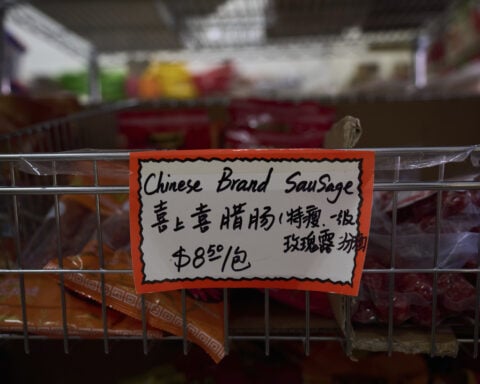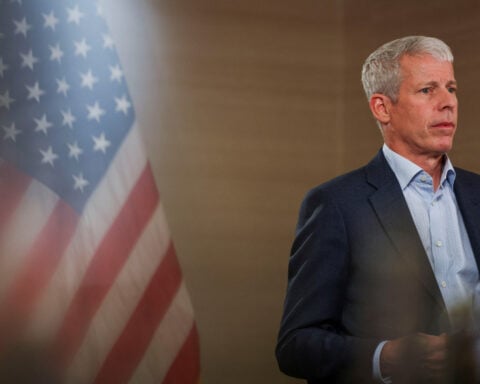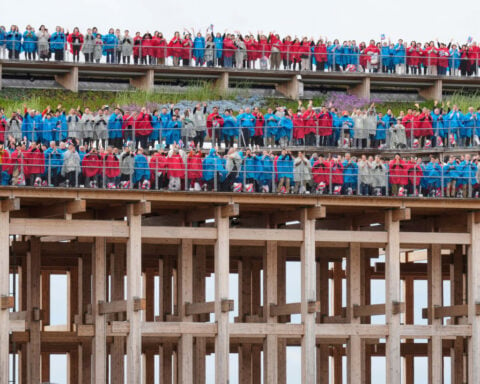By Mark John, Francesco Canepa and Leika Kihara
LONDON/TOKYO (Reuters) -The latest round of U.S. trade tariffs unveiled on Wednesday will sap yet more vigour from a world economy barely recovered from the post-pandemic inflation surge, weighed down by record debt and unnerved by geopolitical strife.
Depending on how President Donald Trump and leaders of other nations proceed now, it may also go down as a turning point for a globalised system that until now had taken for granted the strength and reliability of America, its largest component.
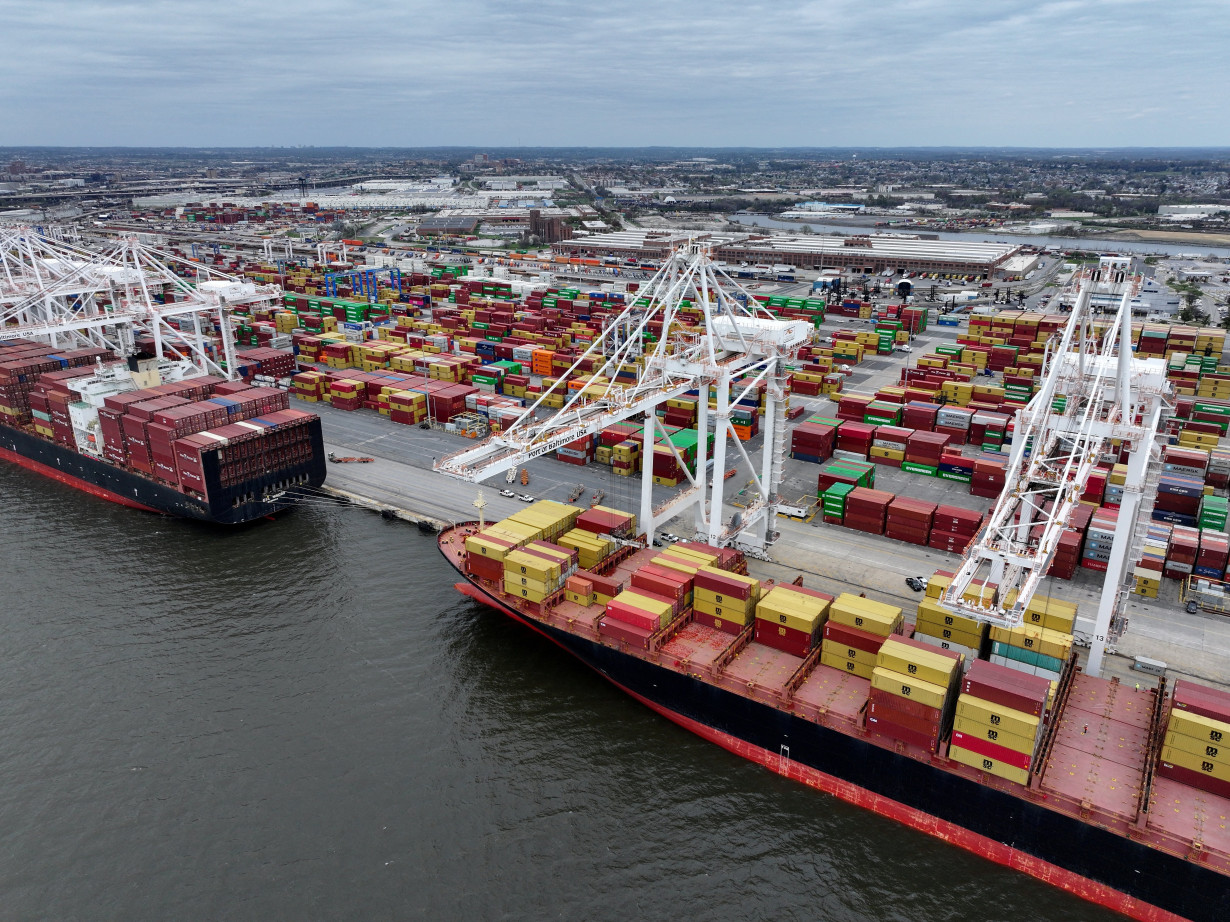
"Trump's tariffs carry the risk of destroying the global free trade order the United States itself has spear-headed since the Second World War," said Takahide Kiuchi, executive economist at Nomura Research Institute.
But in coming months it will be the plain and simple price-hiking - and therefore demand-dampening - effects of new levies applied to thousands of goods bought and sold by consumers and businesses across the planet that will prevail.
"I see it as a drift of the U.S. and global economy towards worse performance, more uncertainty and possibly heading towards something we could call a global recession," said Antonio Fatas, macroeconomist at the INSEAD business school in France.
Speaking in the White House Rose Garden, Trump said he would impose a 10% baseline tariff on all imports and held up a chart showing higher duties on some of the country's biggest trading partners, including 34% on China and 20% on the European Union.
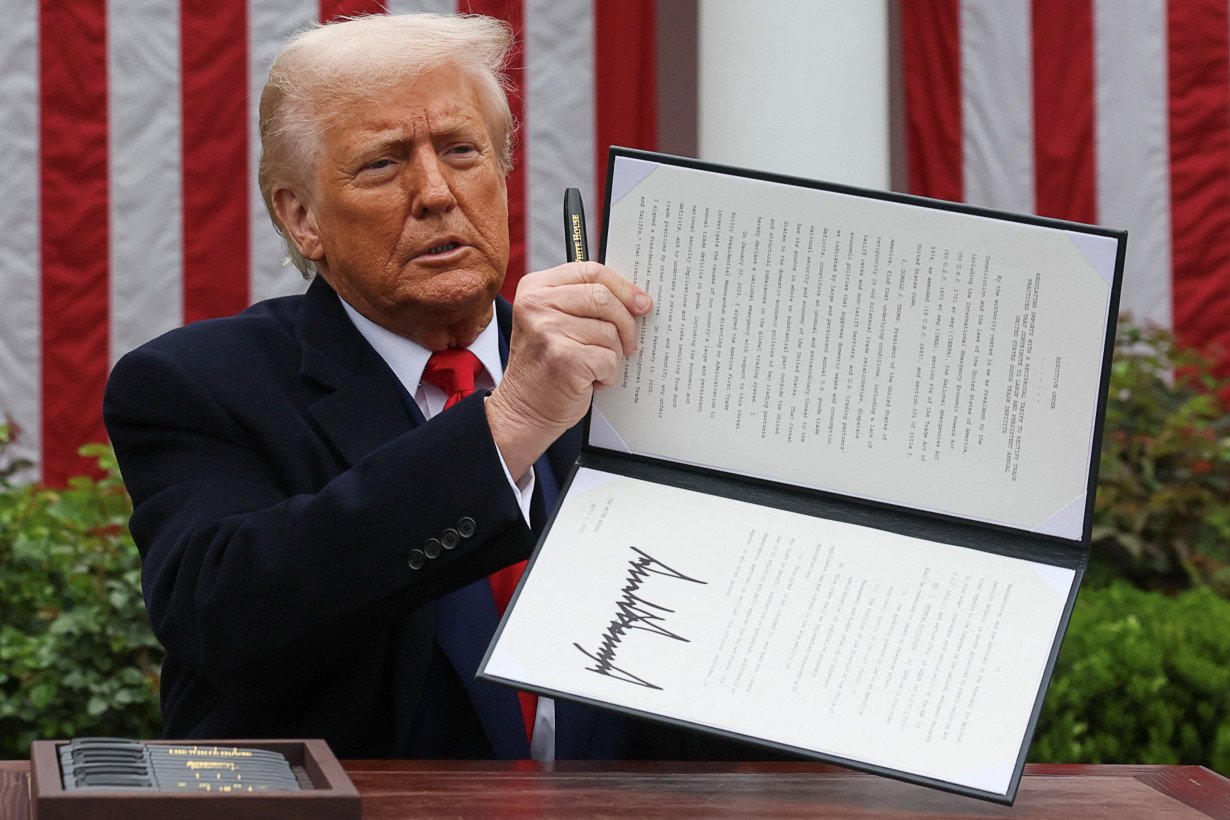
A 25% auto and auto parts tariff was confirmed earlier. Trump said the tariffs would return strategically vital manufacturing capabilities to the United States.
Under the new global levies imposed by Trump, the U.S. tariff rate on all imports jumped to 22% - a rate last seen around 1910 - from just 2.5% in 2024, said Olu Sonola, head of U.S. economic research at Fitch Ratings.
"This is a game changer, not only for the U.S. economy but for the global economy," Sonola said. "Many countries will likely end up in a recession."
IMF Managing Director Kristalina Georgieva told a Reuters event this week she did not see global recession for now. She added the Fund expected shortly to make a small downward "correction" to its 2025 forecast of 3.3% global growth.
But the impact on national economies is set to diverge widely, given the spectrum of tariffs ranging from 10% for Britain to 49% for Cambodia.
If the result is a wider trade war, that would have even larger repercussions for producers like China, which would be left hunting for new markets in the face of weak domestic consumption.
"Asian economies will be hit harder than most by U.S. reciprocal tariffs," said Marcel Thieliant, head of Asia-Pacific at Capital Economics. "Not only do Asian economies face higher tariffs than many others, they are also more dependent on U.S. goods demand than most."
If the tariffs push the U.S. itself towards recession, that will weigh heavily on developing countries whose fortunes are closely tied to those of the world's largest economy.
Stocks dived and investors scrambled to the safety of bonds, gold and the yen on Thursday on heightened economic worries.
AN 'INVERTED WORLD'
The knock-on effects for central banks and governments are also potentially large.
An unravelling of supply chains that for years kept a lid on prices for consumers could lead to a world in which inflation tends to run "hotter" than the 2%, which central bankers currently agree is a manageable target.
That would complicate decisions for the Bank of Japan, which may face pressure to combat inflation with more rate hikes just as its major counterparts eye cuts, and as its export sector takes a hit from U.S. duties.
But there is little countries can do beyond mitigating the economic hit and asking Washington for exemptions. Auto exporters Japan, hit with a 24% reciprocal tariff rate, and South Korea, which was imposed a 25% rate, have signalled plans to take emergency measures to support affected businesses.
Despite being U.S. allies, both countries were singled out by Trump as the worst offenders of unfair trade practices.
Japan's trade minister warned the U.S. levies could violate World Trade Organization (WTO) rules, but said only that Tokyo will consider "various options" on how to respond. "Given its strong national security ties with the United States, Japan has no cards to play to win concessions," said Nomura's Kiuchi.
Australia's prime minister criticised the tariffs as not "the act of a friend" but ruled out reciprocal measures.
Weak economic output will leave some governments struggling even more to pay down the world's record $318 trillion debt load and find money for budget priorities such as defence, climate action and welfare.
And what if the tariffs do not bring about Trump's aim of private sector investment in domestic U.S. manufacturing, given the domestic labour shortages already facing a country with close to full employment?
Some see him seeking other ways to remove the U.S. global trade deficit that riles him so much - for example by demanding others join in a re-balancing of foreign exchange rates to benefit U.S. exporters.
"We are going to continue to see him putting out there potentially more risky ways of dealing with the continuous strength of the dollar," said Freya Beamish, chief economist at investment strategy firm TS Lombard.
Such moves could jeopardise the privileged position of the dollar as the world reserve currency of choice - an outcome few predict, if only because there are no real alternatives to the dollar.
Nonetheless, European Central Bank President Christine Lagarde on Wednesday told an event in Ireland that Europe needed to act now and accelerate economic reforms to compete in what she called an "inverted world".
"Everyone benefited from a hegemon, the United States, that was committed to a multilateral, rules-based order," she said of the post-Cold War era of low inflation and growing trade in an open global economy.
"Today we must contend with closure, fragmentation and uncertainty."
(Writing by Mark John; additional reporting by Balazs Koranyi in Frankfurt; Karin Strohecker in London; Marius Zaharia in Beijing; Leika Kihara in Tokyo; Graphics by Marc Jones in London; Editing by Anna Driver, Lincoln Feast and Sam Holmes)

 Trump has begun another trade war. Here's a timeline of how we got here
Trump has begun another trade war. Here's a timeline of how we got here
 Canada's leader laments lost friendship with US in town that sheltered stranded Americans after 9/11
Canada's leader laments lost friendship with US in town that sheltered stranded Americans after 9/11
 Chinese EV giant BYD's fourth-quarter profit leaps 73%
Chinese EV giant BYD's fourth-quarter profit leaps 73%
 You're an American in another land? Prepare to talk about the why and how of Trump 2.0
You're an American in another land? Prepare to talk about the why and how of Trump 2.0
 Chalk talk: Star power, top teams and No. 5 seeds headline the women's March Madness Sweet 16
Chalk talk: Star power, top teams and No. 5 seeds headline the women's March Madness Sweet 16
 Purdue returns to Sweet 16 with 76-62 win over McNeese in March Madness
Purdue returns to Sweet 16 with 76-62 win over McNeese in March Madness
